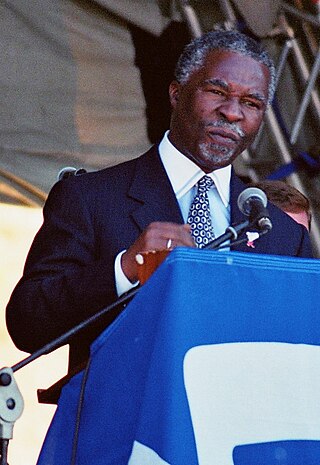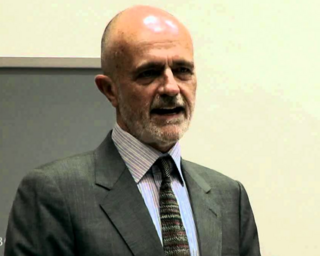Same-sex marriage has been legal in South Africa since the Civil Union Act, 2006 came into force on 30 November 2006. The decision of the Constitutional Court in the case of Minister of Home Affairs v Fourie on 1 December 2005 extended the common-law definition of marriage to include same-sex spouses—as the Constitution of South Africa guarantees equal protection before the law to all citizens regardless of sexual orientation—and gave Parliament one year to rectify the inequality in the marriage statutes. On 14 November 2006, the National Assembly passed a law allowing same-sex couples to legally solemnise their union 229 to 41, which was subsequently approved by the National Council of Provinces on 28 November in a 36 to 11 vote, and the law came into effect two days later.

Lesbian, gay, bisexual, transgender, and queer (LGBTQ) people in South Africa have the same legal rights as non-LGBTQ people. South Africa has a complex and diverse history regarding the human rights of LGBTQ people. The legal and social status of between 400,000 to over 2 million lesbian, gay, bisexual, transgender and intersex South Africans has been influenced by a combination of traditional South African morals, colonialism, and the lingering effects of apartheid and the human rights movement that contributed to its abolition.
Chapter Two of the Constitution of South Africa contains the Bill of Rights, a human rights charter that protects the civil, political and socio-economic rights of all people in South Africa. The rights in the Bill apply to all law, including the common law, and bind all branches of the government, including the national executive, Parliament, the judiciary, provincial governments, and municipal councils. Some provisions, such as those prohibiting unfair discrimination, also apply to the actions of private persons.

National Coalition for Gay and Lesbian Equality and Another v Minister of Justice and Others is a decision of the Constitutional Court of South Africa which struck down the laws prohibiting consensual sexual activities between men. Basing its decision on the Bill of Rights in the Constitution – and in particular its explicit prohibition of discrimination based on sexual orientation – the court unanimously ruled that the crime of sodomy, as well as various other related provisions of the criminal law, were unconstitutional and therefore invalid.

The Lesbian and Gay Equality Project (LGEP), formerly known as the National Coalition for Gay and Lesbian Equality (NCGLE), is a non-profit, non-governmental organization in South Africa that focuses on the expansion of LGBT civil rights in South Africa and other countries in sub-Saharan Africa. It was co-founded by Zackie Achmat in 1994, and successfully lobbied for the inclusion of sexual orientation as a basis for non-discrimination laws in the country after the end of the apartheid period. The organization has continued to operate after South Africa officially legalized same-sex marriage in 2005. Its work includes "law reform, lobbying, litigation, advocacy, employment equity, leadership training and development."
Catherine "Kate" O'Regan is a former judge of the Constitutional Court of South Africa. From 2013 to 2014 she was a commissioner of the Khayelitsha Commission and is now the inaugural director of the Bonavero Institute of Human Rights at the University of Oxford.

The Constitution of the Western Cape is, subject to the Constitution of South Africa, the highest law regulating the structure and powers of the government of the Western Cape province of South Africa. It was enacted by the Western Cape Provincial Legislature in terms of Chapter 6 of the national constitution, and came into force on 16 January 1998. The Western Cape is the only South African province to have adopted a constitution.

National Coalition for Gay and Lesbian Equality and Others v Minister of Home Affairs and Others, [1999] ZACC 17, is a 1999 decision of the Constitutional Court of South Africa which extended to same-sex partners the same benefits granted to spouses in the issuing of immigration permits. It was the first Constitutional Court case to deal with the recognition of same-sex partnerships, and also the first case in which a South African court adopted the remedy of "reading in" to correct an unconstitutional law. The case is of particular importance in the areas of civil procedure, immigration, and constitutional law and litigation.

Du Toit and Another v Minister for Welfare and Population Development and Others is a decision of the Constitutional Court of South Africa which granted same-sex couples the ability to jointly adopt children. LGBT people had already been able to adopt children individually, but only married couples could adopt jointly; the decision was handed down in September 2002, four years before same-sex marriage became legal in South Africa. The court ruled unanimously that the statutory provisions limiting joint adoption to married couples were unconstitutional, and the resulting order amended the law to treat same-sex partners in the same way as married couples.
Section Nine of the Constitution of South Africa guarantees equality before the law and freedom from discrimination to the people of South Africa. This equality right is the first right listed in the Bill of Rights. It prohibits both discrimination by the government and discrimination by private persons; however, it also allows for affirmative action to be taken to redress past unfair discrimination.
South African family law is concerned with those legal rules in South Africa which pertain to familial relationships. It may be defined as "that subdivision of material private law which researches, describes and regulates the origin, contents and dissolution of all legal relationships between: (i) husband and wife ; (ii) parents, guardians and children; and (iii) relatives related through blood and affinity."
"As far as family law is concerned, we in South Africa have it all. We have every kind of family; extended families, nuclear families, one-parent families, same-sex families, and in relation to each one of these there are controversy, difficulties and cases coming before the courts or due to come before the courts. This is the result of ancient history and recent history [...]. Our families are suffused with history, as family law is suffused with history, culture, belief and personality. For researchers it's a paradise, for judges a purgatory."
Section 20A of the Immorality Act, 1957, commonly known as the "men at a party" clause, was a South African law that criminalised all sexual acts between men that occurred in the presence of a third person. The section was enacted by the Immorality Amendment Act, 1969 and remained in force until it was found to be unconstitutional in 1998 by the Constitutional Court in the case of National Coalition for Gay and Lesbian Equality v Minister of Justice.
This is a timeline of notable events in the history of lesbian, gay, bisexual and transgender people in South Africa.

Kruger v President of the Republic of South Africa and Others is an important case in South African law, heard in the Constitutional Court (CC) on 19 February 2008, with judgment handed down on 2 October. The judges were Langa CJ, O'Regan ADCJ, Madala J, Mokgoro J, Ngcobo J, Nkabinde J, Skweyiya J, Van Der Westhuizen J, Yacoob J, Jafta AJ and Kroon AJ. Counsel for the applicant was Geoff Budlender. There was no appearance for the first respondent, but Wim Trengove SC appeared for the second and for the third respondent. The applicant's attorneys were Kruger & Co.; the State Attorney represented the second respondent, while the third respondent's attorneys were Brugmans Inc.

Wim Trengove SC is a South African advocate best known for his role in constitutional litigation. He has argued various administrative law, constitutional law, and human rights law matters in the Constitutional Court of South Africa, including several high-profile political cases.

The Civil Union Amendment Act, 2020 is an act of the Parliament of South Africa which repealed section 6 of the Civil Union Act, 2006, a section which had allowed civil marriage officers to opt out of solemnising same-sex marriages on the grounds of conscience, religion or belief.
Freedom of Religion South Africa is a South African nonprofit fundamentalist Christian advocacy group. It was founded in 2014 by Andrew Selley, the lead pastor and founder of the Joshua Generation Church, after parents filed a complaint to the South African Human Rights Commission that alleged that Joshua Generation Church advocated for corporal punishment in the home. In Freedom of Religion South Africa v Minister of Justice and Constitutional Development, FOR SA unsuccessfully opposed a ruling by the Johannesburg High Court that deemed corporal punishment to be assault.

DE v RH is a decision of the Constitutional Court of South Africa in the law of delict. The court abolished the third-party delictual claim for adultery, holding unanimously that society's contemporary boni mores indicated that the act of adultery by a third party lacks wrongfulness and therefore does not give rise to delictual liability. The judgment was handed down without papers on 19 June 2015 and was written by Justice Mbuyiseli Madlanga, with a separate concurrence by Chief Justice Mogoeng Mogoeng.

Harksen v Lane NO and Others is an important decision of the Constitutional Court of South Africa, delivered on 7 October 1997. The court dismissed a challenge to the constitutionality of the Insolvency Act, 1936, finding that it was consistent with the right to property and right to equality for the property of a solvent spouse to be attached to the insolvent estate of his or her partner. Justice Richard Goldstone wrote for the majority.

Bwanya v Master of the High Court, Cape Town and Others is an important decision in the South African law of succession and particularly the law of intestate succession. It was decided by the Constitutional Court of South Africa on 31 December 2021 with a majority judgment written by Justice Mbuyiseli Madlanga. A majority of the court upheld a challenge to the constitutionality of the Intestate Succession Act, 1981 and Maintenance of Surviving Spouses Act, 1990, holding that it was unfairly discriminatory to exclude the survivors of permanent life partnerships from the protections the acts extend to the survivors of legal marriages. Bwanya therefore overturned the holding in Volks v Robinson.








